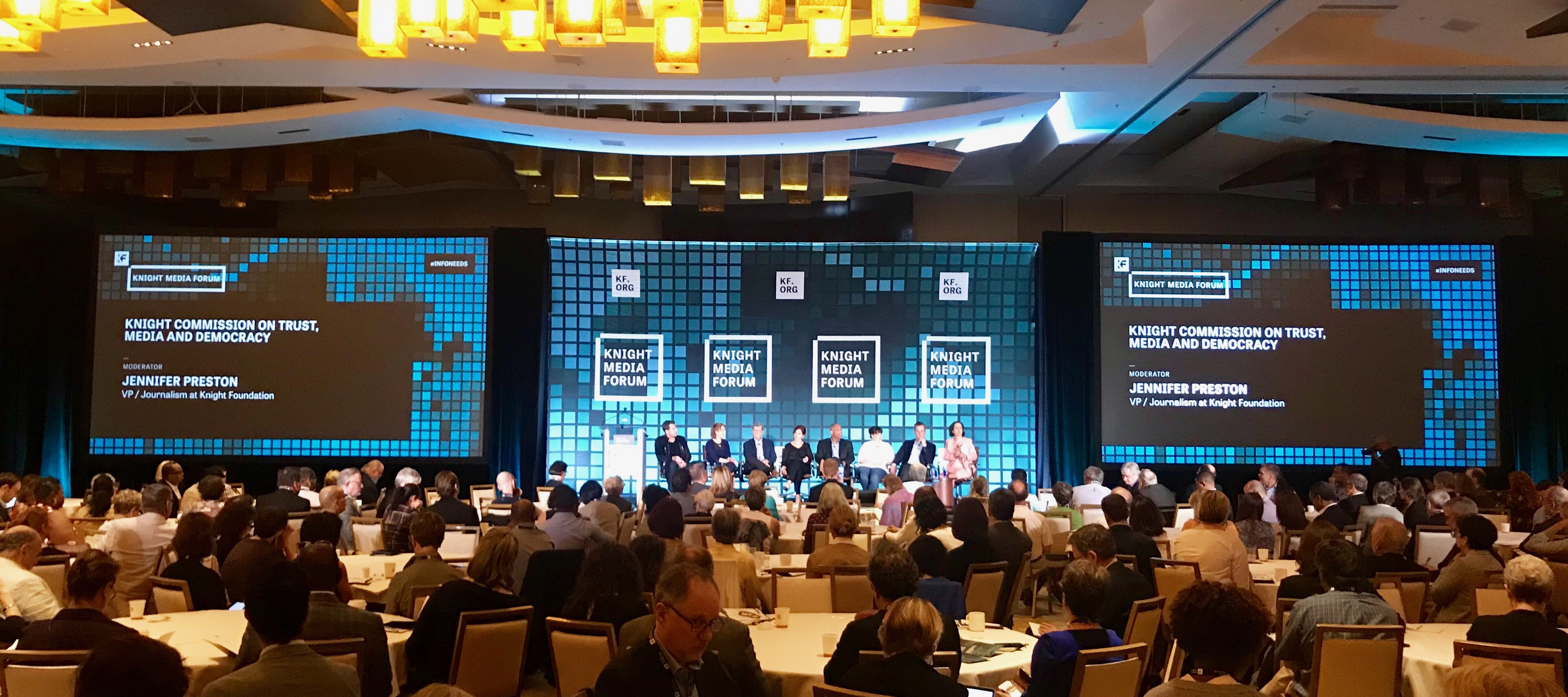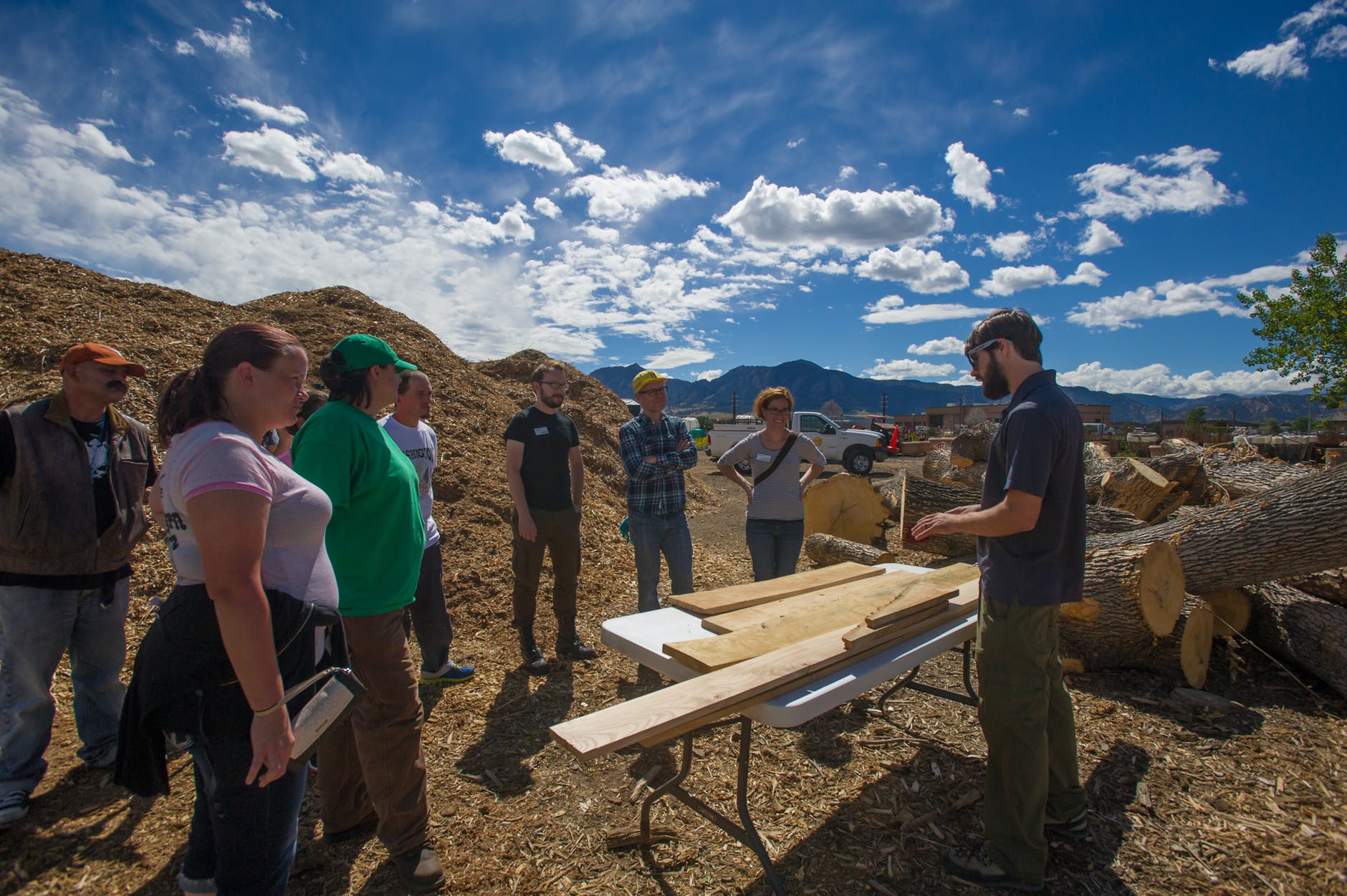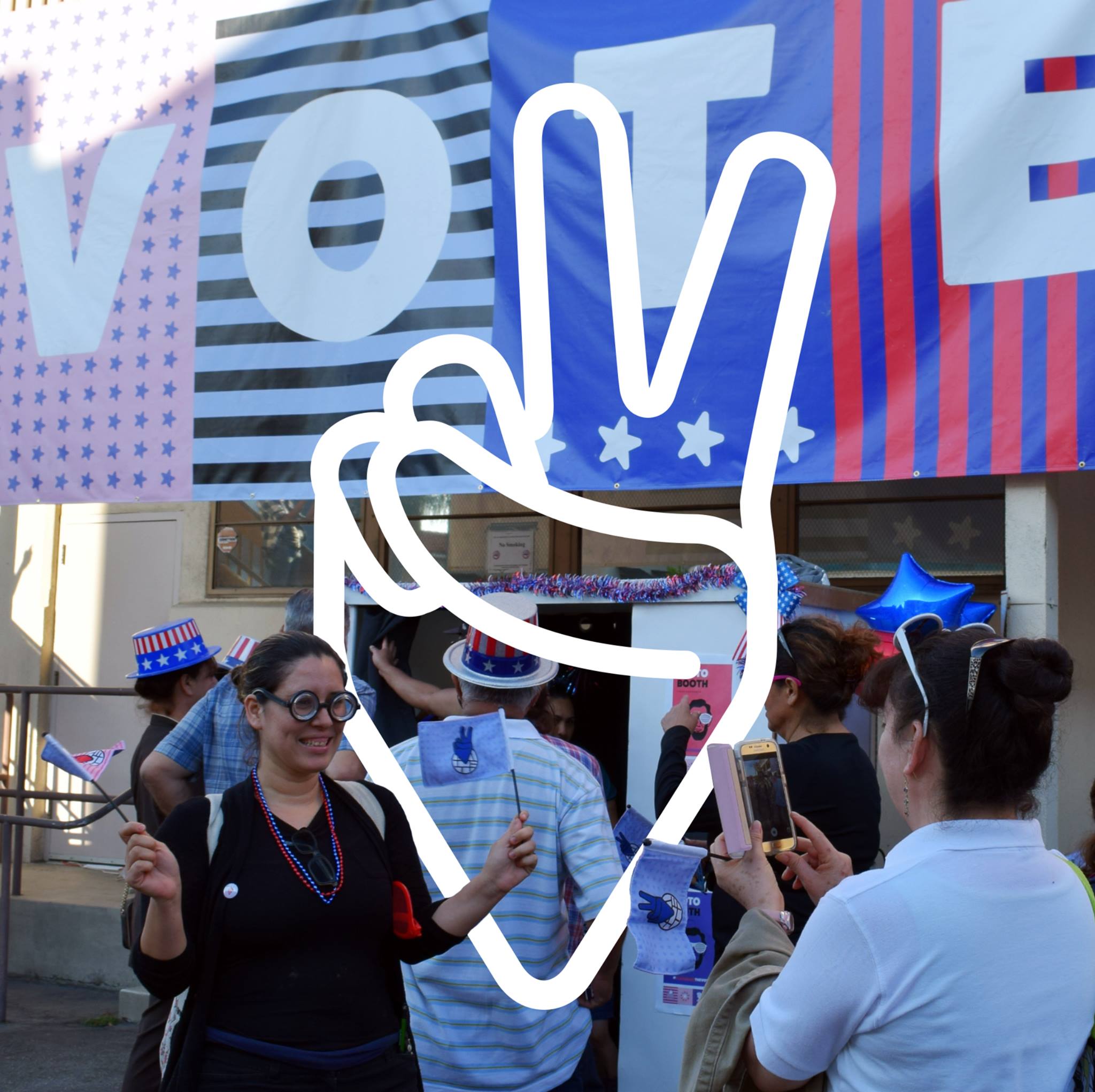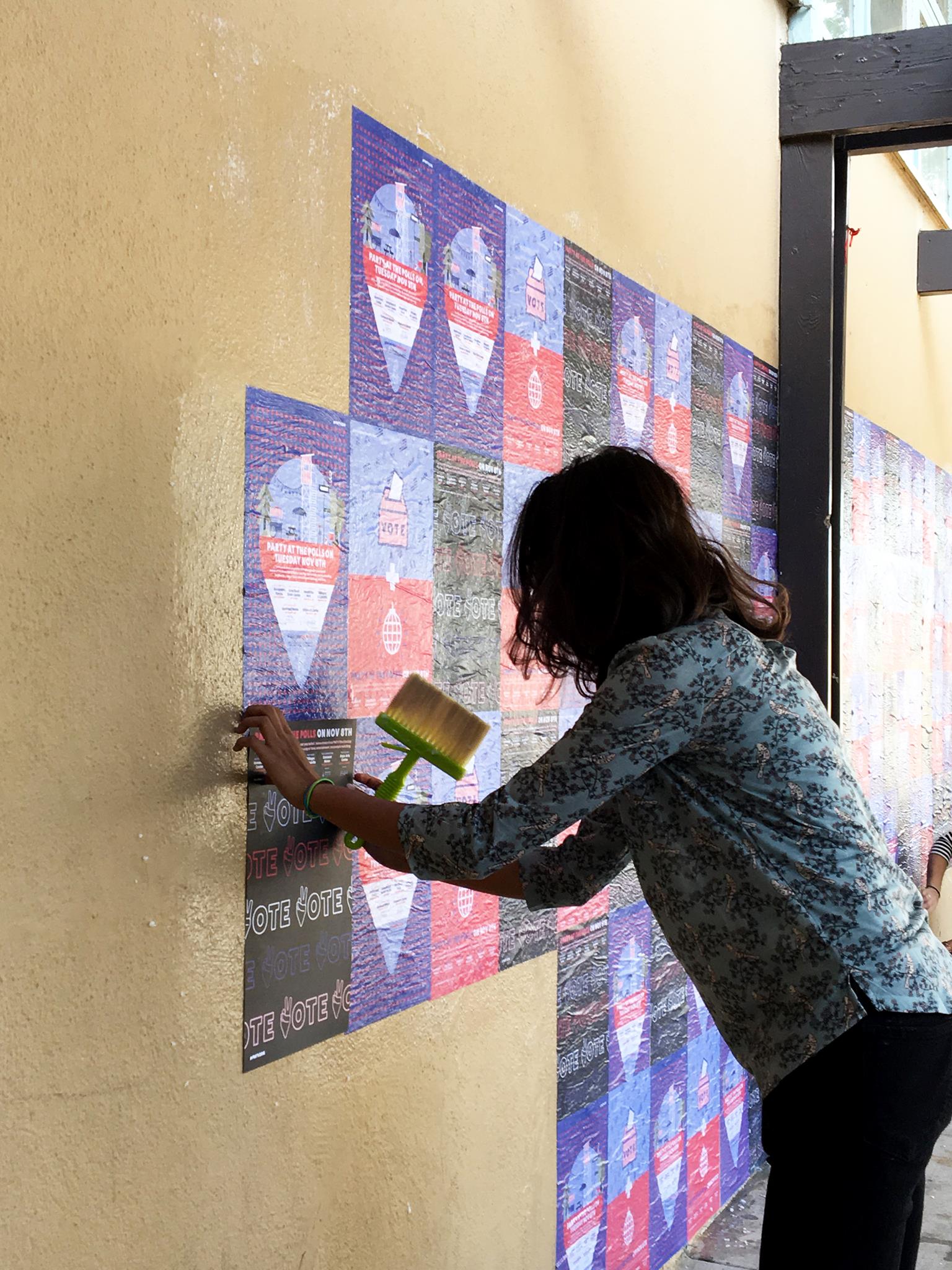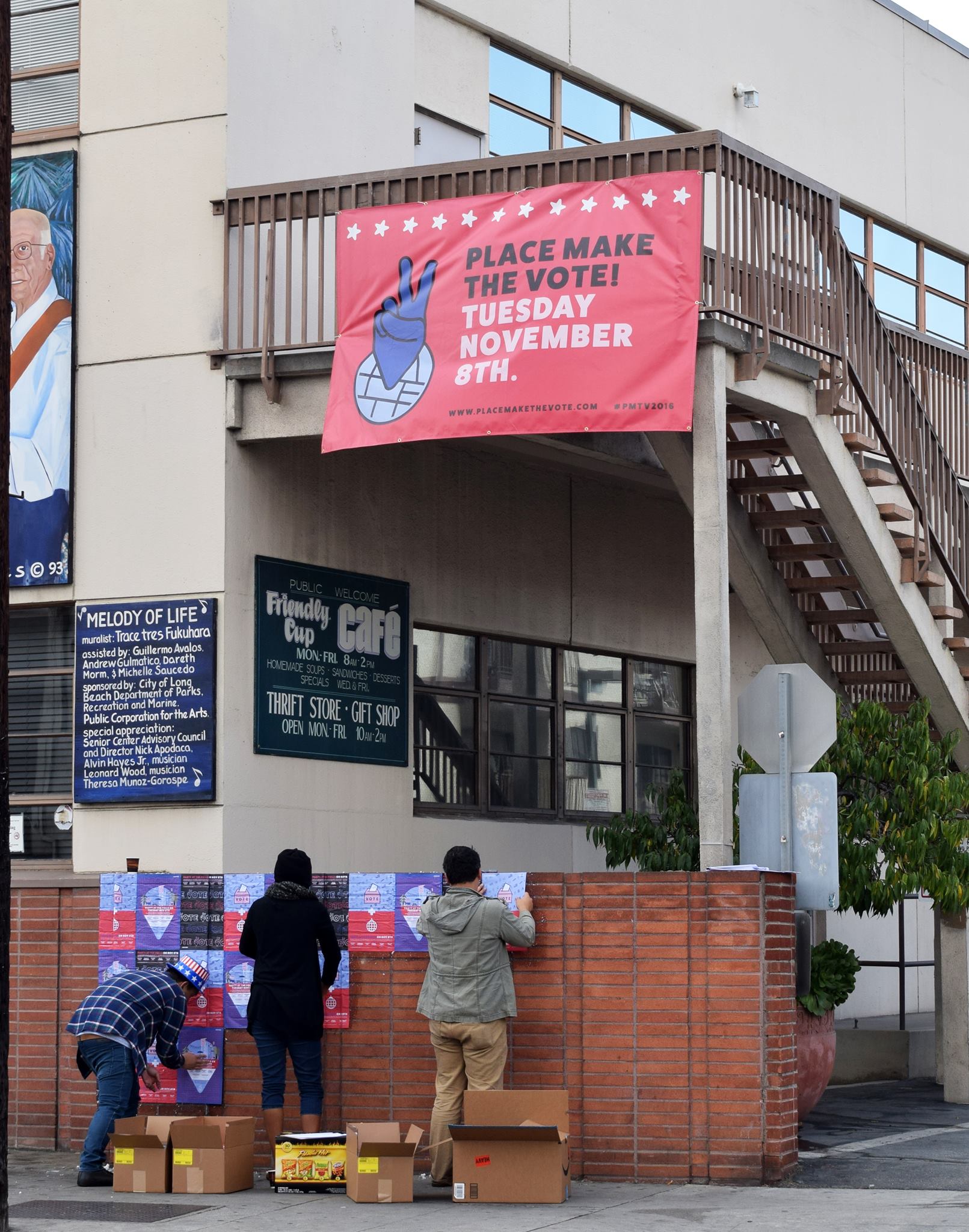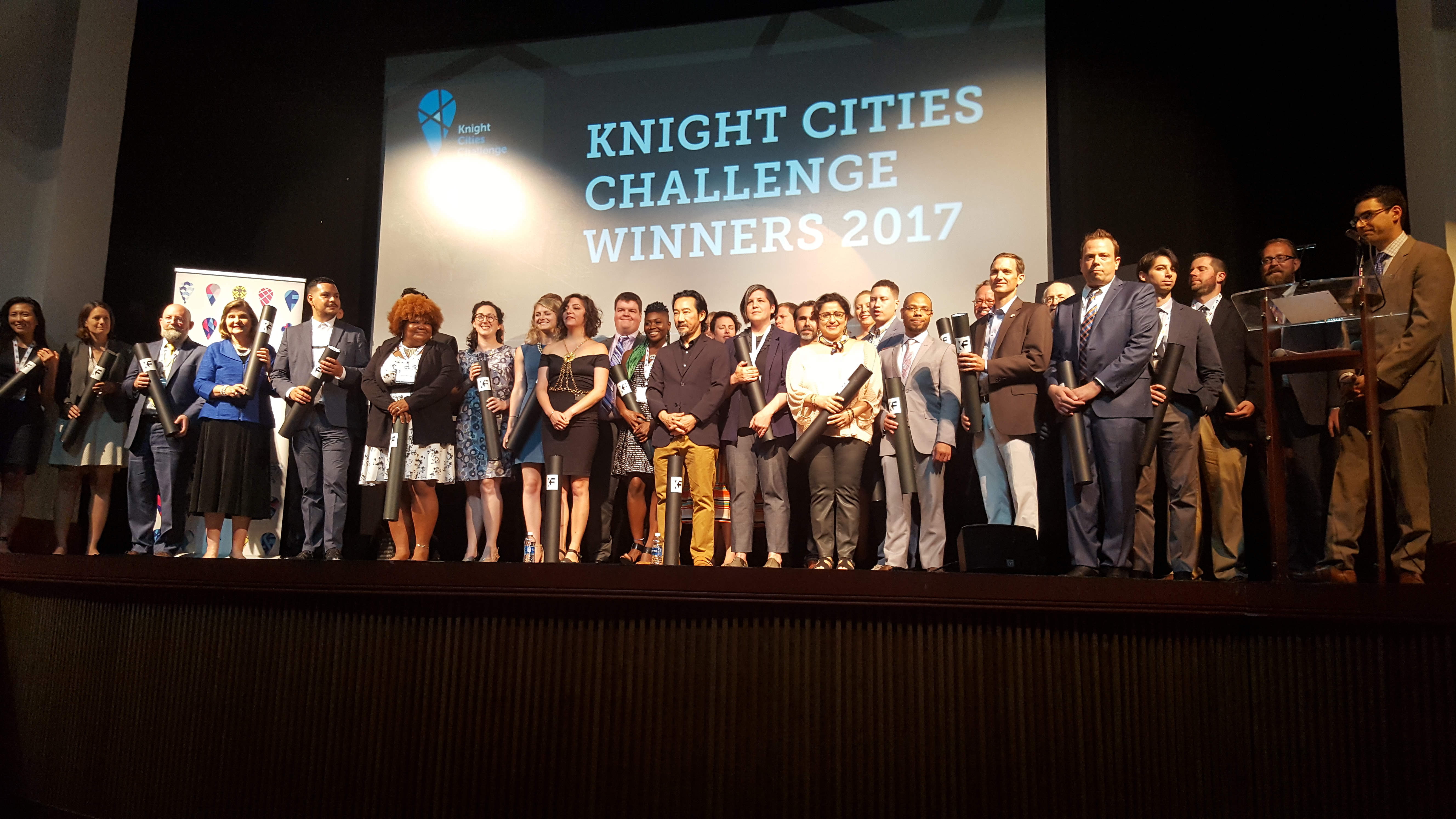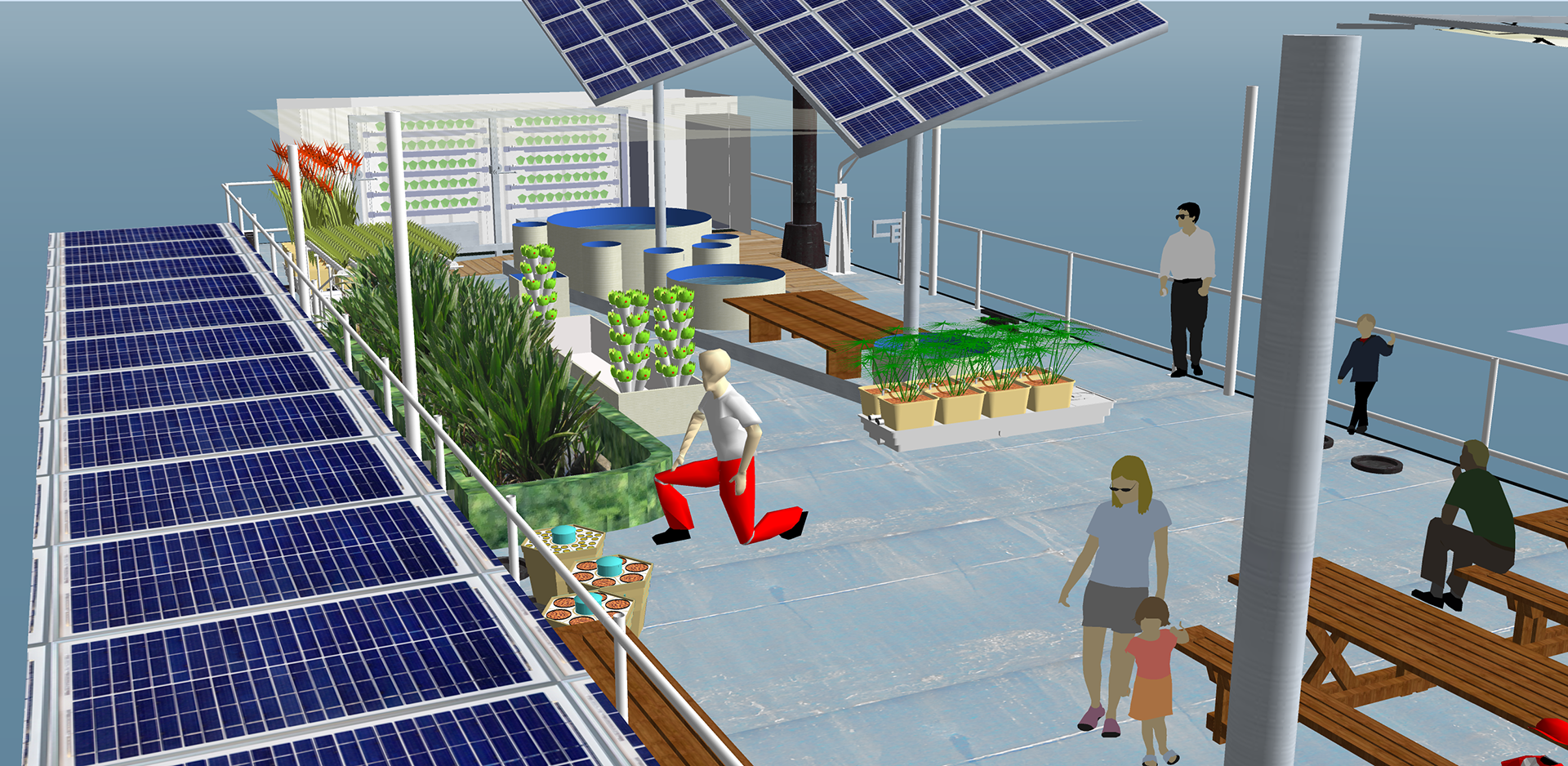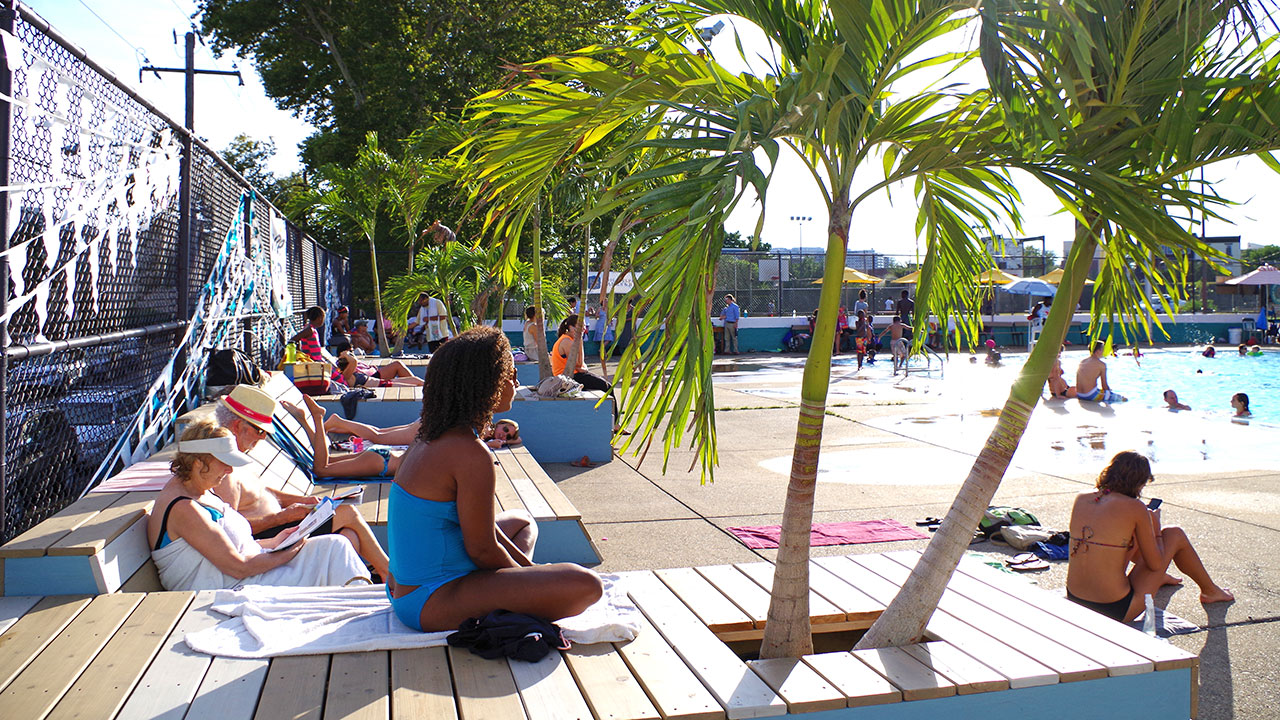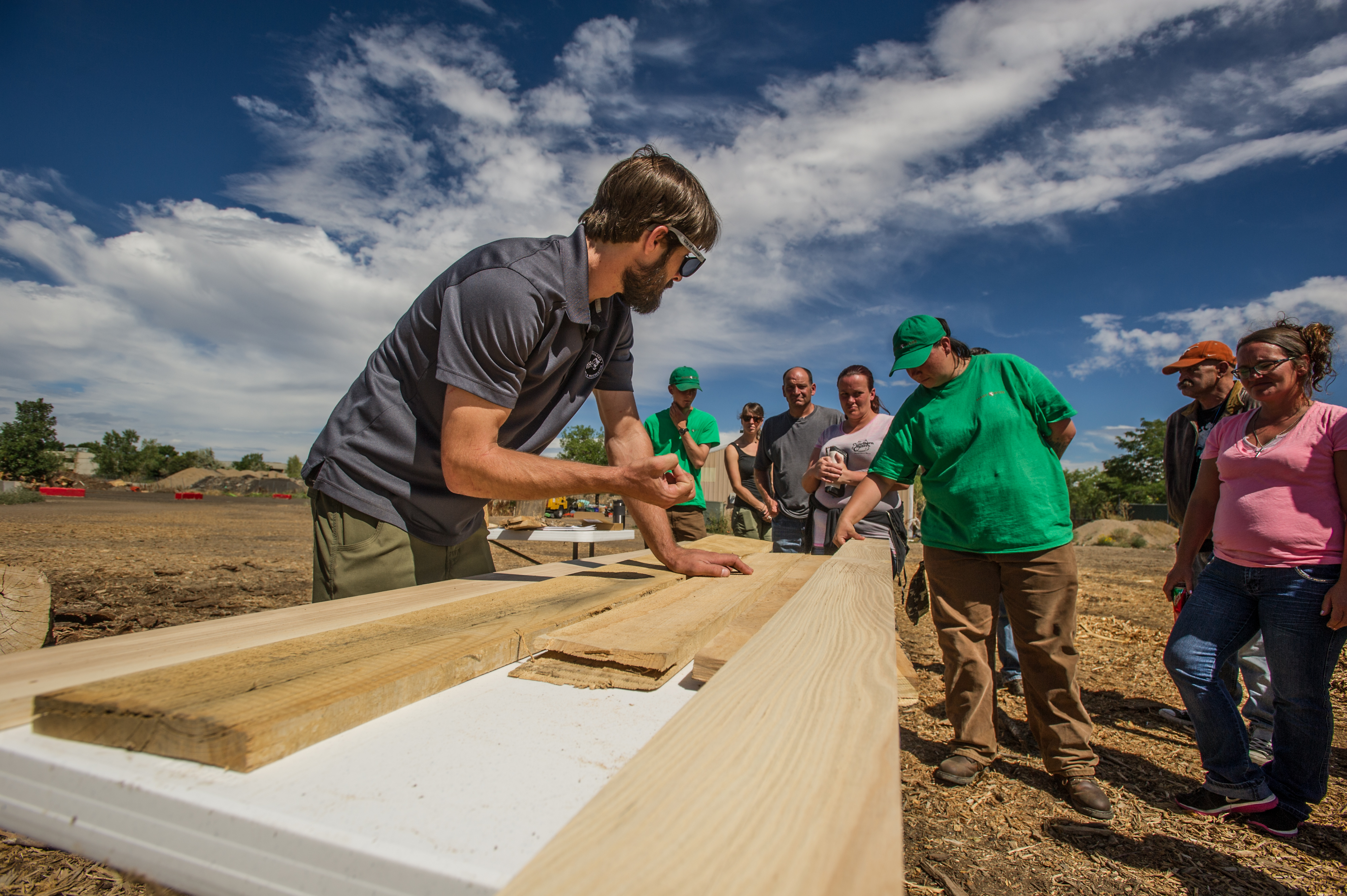ST. PAUL, Minn. – Feb. 20, 2018 –This summer, American Public Media (APM) will look to expand the horizon of rising entrepreneurs and contribute to business development in St. Paul with the launch of a new and philanthropy-backed innovation center, The Glen Nelson Center, in addition to a startup incubator supported in part by $1 million from the John S. and James L. Knight Foundation.
The Glen Nelson Center will invest in startups aligned with APM’s mission and launch new businesses on the frontier of media and technology. The new center is named in honor of Glen Nelson, M.D. – a longtime supporter, board member and board chair at Minnesota Public Radio and APM – who passed away in 2016. As vice chairman at Medtronic, Dr. Nelson championed efforts to save lives through innovation and was the patron of the “Patent Garden,” honoring the legacies of medical inventors.
“We are immensely grateful for Marilyn Carlson Nelson and her family’s support of this initiative and its dedication to Glen’s mission,” said Jon McTaggart, president and CEO of American Public Media Group. “This wouldn’t be possible without the scores of friends who made memorial gifts in honor of Glen, along with the support of Newman’s Own Foundation and the Bill Kling Innovation Endowment. The generosity of these individuals and organizations have made the Glen Nelson Center a reality. This center will honor Glen’s commitment to innovation and entrepreneurship that creates social good.”
APM’s primary goal is to expand our relevance and reach to audiences. The Glen Nelson Center will invest in companies that support this mission and are on the frontier of their field. The center is central to APM’s efforts to lead the changing landscape of media, in addition to ensuring that APM can continue to serve diverse and growing audiences in the most vital of ways. Jeff Freeland Nelson (no relation), a seasoned entrepreneur with 20 years of leadership experience across the for-profit, non-profit and governmental sectors, will lead the Glen Nelson Center.
The first new business launched by the Glen Nelson Center will be Lunar Startups, a shared workspace and new venture incubator. The Glen Nelson Center and Lunar Startups will be based in downtown Saint Paul’s Osborn370, which opened this year to house the next generation of innovators in a vibrant setting within the reimagined former Ecolab headquarters.
Lunar Startups to accelerate high-growth startups with Knight Foundation support
Lunar Startups is a collaboration between the Glen Nelson Center and Osborn370 with support from the Knight Foundation that will incubate and accelerate early-stage, high-growth startups with a strong commitment to entrepreneurs from underrepresented communities.
“The Glen Nelson Center and Lunar Startups aims to help ensure entrepreneurs across all of our city’s diverse communities have access to the tools and resources they need to contribute to the success of St. Paul,” said Jai Winston, Knight Foundation program director for St. Paul. “The center’s location in downtown will also help to add a new, vibrant hub for ideas to the heart of the city, encouraging further growth and development.”
Lunar’s collaborative space will inspire a wide-ranging group of startups and give them access to critical resources, such as shared office space, visibility, programming, essential business services, and a powerful mentorship network. Melissa Kjolsing Lynch is the founding managing director of Lunar, as well as the co-founder of tech startup Recovree. Recently named by Minnesota Business as one of the 2018 (Real) Power 50, Melissa previously led the MN Cup, the largest statewide startup competition in the country.
“The Glen Nelson Center and Lunar Startups have the leadership and vision to be a perfect match for Osborn370 and St. Paul,” said Scott Burns, technology start-up veteran and partner in Osborn370. “The entrepreneurs they seek to nurture will find a vibrant community of innovators in this unique building.”
Glen Nelson Center and Lunar Startups will occupy one full floor of Osborn370. The 10,000-square-foot space is scheduled to open in summer 2018. For more information on the Glen Nelson Center, visit http://www.glennelson.org. To learn more about Lunar Startups, visit LunarStartups.org.
About American Public Media
American Public Media® is the national programming division of Minnesota Public Radio® and reaches 20 million listeners via 1,000 radio stations nationwide each week. APM is one of the largest producers and distributors of public radio programming in the world, with a portfolio that includes BBC World Service, Marketplace® and the leading classical music programs in the nation. APM offers a diverse array of podcasts featuring the best in food, culture, entertainment, business and investigative journalism. In November 2015, APM launched APM Reports, a long-form reporting group aimed at creating distinct, high-impact journalism in the form of investigations and documentaries. APM Reports’ groundbreaking investigative podcast, In the Dark, which examinedthe 27-year-old cold case of the kidnapping of Jacob Wetterling in central Minnesota, won a George Foster Peabody Award, the highest honor in broadcasting. For more information on APM, visit americanpublicmedia.org.
Source: Data are copyright Nielsen Audio. Data are estimates only.
About Knight Foundation
Knight Foundation is a national foundation with strong local roots. We invest in journalism, in the arts, and in the success of cities where brothers John S. and James L. Knight once published newspapers. Our goal is to foster informed and engaged communities, which we believe are essential for a healthy democracy. For more, visit knightfoundation.org.
About Osborn370
Osborn370 is building a community of innovators in downtown Saint Paul. The former Ecolab headquarters tower is being transformed into a working environment where companies, organizations and individuals can create and collaborate. Through design, intentional collaborative spaces, critical professional services and lead tenants that set the tone for innovation, Osborn 370 is designed to support large and small entrepreneurial businesses and help them attract and retain the talent they need to power their growth.
Media contacts:
Kelly Reller, American Public Media, 651-290-1552, [email protected]
Anusha Alikhan, Director of Communications, Knight Foundation, 305-908-2646, [email protected]

